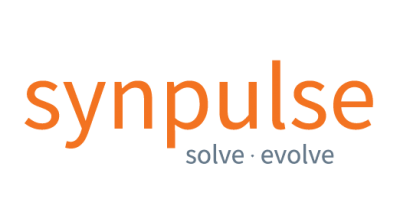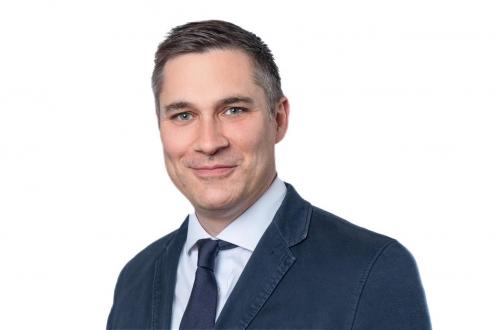Synpulse’s Raphael Bianchi on the Vision of API Standardisation for More ‘Open Finance’ in Asia

Nov 20, 2023
Raphael Bianchi is Senior Partner at Synpulse Switzerland, and Co-CEO of Synpulse8, the firm’s tech powerhouse. Allied with these roles, Raphael is helping to spearhead the expansion of the Synpulse-orchestrated OpenWealth Association, of which he is the founding President. The Association is essentially a club of like-minded financial institutions, WealthTechs, wealth service providers and others all of which are aiming to boost and fast-track API standardisation, semantics and user-friendliness. It has grown to more than 60-strong in Switzerland. Hubbis met with him recently to learn more about what has been happening in Switzerland thus far, and why, as well as to hear of his hopes and challenges on potentially rolling out the concept in Asia. Although based in Switzerland, Raphael has considerable experience in Asia, having opened Synpulse’s Singapore office back in 2008, he has learned that the wealth markets in Asia are significantly different from Switzerland or Europe. His first objective in Singapore is to form deeper connections with local banks, EAMs and others, as well as with that market’s extensive WealthTech community, before moving to stage two and beyond of the Association’s expansion plan.
Back in 2020, Synpulse orchestrated and created the OpenWealth Association. The OpenWealth Association acts essentially as the conductor of the growing members of its API orchestra, which includes WealthTechs and API collaborators of all shapes and sizes, as well as an increasing number of banks, private banks and wealth managers, mostly in Switzerland for now.
“The concept was to create a community of OpenWealth API-consuming users aligned with the creators of those APIs, with a vision of establishing global Open API standards,” Raphael reports. “We aim to help the users achieve scalable and reusable integration with a trusted community using OpenWealth API. We are acting as a catalyst for developing APIs with the API and FinTech community for the financial and wealth management community.”
The world of Open Finance
Raphael is quick to point out that Synpulse’s vision in forming the Association was not to limit themselves to open banking, which he says is more related to functionalities such as accounts and payments, but to adopt a 360-degree view on helping evolve towards Open Finance, which he says is far more all-encompassing.
“We saw that in Switzerland and far beyond, the wealth management industry might be huge, established and fast-growing, but the standards and protocols for the new age of wealth management we are all living through are lagging behind,” he states. “With the right approaches, we help marry optimal APIs to the advanced wealth industry in Switzerland and can then extend this outwards to other markets.”
Ultimately, he says the mission is for the Association to help create the appropriate language or the technological syntax and grammar (semantics) around how systems communicate with a view to providing a much better end-client user experience, better data quality and enable new business use cases to connect systems in a very cost-efficient manner.
Well-established in Switzerland
Raphael explains they work with banks, wealth managers, asset managers, and others, as well as solution providers, which might be data providers, FinTech and WealthTech or RegTech providers, and together with those members, they define the standards of the required APIs, and then develop the optimal structures. “We already have more than 60 members signed up for that, working with them on the standardisation roadmap for APIs,” he elucidated.
The list of financial institutions that have joined this OpenWealth Association as Synpulse has named it is impressive, including names such as UBS, Credit Suisse, Pictet, Swissquote, Julius Baer and plenty more.
Similarly, the list of WealthTech participants and API creators – now at least 44-strong - is also expanding constantly. And there are high-profile service providers involved as well, in the form of Google Cloud, the Swiss Stock Exchange provider SIX, and others.
The vision and real-world objectives
Amongst the list of objectives, Raphael refers to the community of WealthTechs and FIs adopting the same API standards according to OpenWealth guidelines, and agreeing on a language or semantics based on established industry standards.
Additionally, there are further gains in terms of standardised security and consents for reusable and secure customer authentication, enhanced knowledge of best practice implementation and API capabilities, as well as regulatory and compliance advantages as these frameworks will be tailored to OpenWealth connectivity.
Advantages for all
For the WealthTech members there are clear advantages ahead with all this. There is access to a new distribution channel for products and services and expanding their professional network. They can enable their clients to use the products and services without technical obstacles. Instead of a peer-to-peer integration for each client, they can achieve scalable connectivity.
For the service consumers, in other words, the banks or other wealth management providers, there are also plenty of advantages. They will be using best-of-breed services to enrich their business. They can more easily create new services, features or even intellectual property and increase revenues, as well as a host of other advantages, including being able to maintain stable and scalable connectivity with service providers and get rid of peer-to-peer integrations.
And finally, for the end-users, the private clients, they will be numerous advantages in terms of ease of interface and elimination of repetitious information delivery, higher levels of responsiveness, greater security, perhaps lower costs as well, and so forth.
Open Finance for all
Raphael then elaborates further on ‘Open Finance’, explaining that, in essence, this facilitates data stored within the financial industry to be opened up to other players, possibly third-party providers or even the end clients.
“This is at the heart of the future of wealth management in our view,” he says. “This is why Synpulse is spending time and effort in creating and orchestrating the OpenWealth Association, bringing all the different types of players together, defining the standards, helping to standardise those standards across providers and users, and then translating all that to real-world situations.”
Recognising new needs in a disrupted market
He extrapolates from these comments, noting that disruption is already well underway in the wealth industry, with banks often not working directly with the end clients but providing the custodian and banking services while those private clients are serviced by EAMs, MFOs and other independents.
These external, non-bank providers are often working with old interfaces that are unable to seamlessly connect to the custodian banks to deliver or receive huge amounts of data on KYC/onboarding, transactions, portfolios, valuations, and so forth, he says.
Three key areas to address
Synpulse divides these challenges into three key areas, under the headings of Custody Services (Portfolio Management/Reconciliation), Customer Management (Customer Onboarding, Lifecycle Management, KYC reviews etc), and Order Placement. In each category, the Association tracks and communicates progress being made in terms of the thrust towards agreed standardisation, based on different versions, currently from V1 to V3.
“We are aiming to significantly enhance connectivity standards and bi-directional data flows amongst the custodians and other parties, the same for customer management, KYC and CLM data, and similarly for the bi-directional trading interface across all types of products and assets.”
Standardisation: cutting costs and promoting scalability
Delving further into the challenges they are addressing, he said that each interface has been bespoke and proprietary to each institution and provider.
“Standardisation brings with it huge flexibility and efficiency,” Raphael states. “Moreover, as each interface has been unique, it is costly to set up, as well as to maintain, and often the quality of the flows is poor. We are striving towards far greater efficiency and cost-effectiveness in connectivity, and to expedite the scaling up of such solutions and open the doors to new use cases across institutions and across different segments of end-clients.”
Synpulse as the standard-bearing catalyst
Raphael explains that Synpulse sees itself as the catalyst for these innovations, as standardisation is probably faster when driven by the regulator, but a market driven approach achieves consent among the players and results in thorough solutions. “Regulation might drive faster change, but not better change, looking at different markets in Europe, for example,” he comments. “This is an industry initiative into which all the different parties have bought in, not financially but psychologically in terms of their commitment to the broader objectives.”
Raphael explains that he himself has one hat as the president of the OpenWealth Association, with the major goal to foster the creation and adoption of the standards, and Synpulse has its simultaneous mission to foster the adoption of the standard by building and offering products to quickly implement the OpenWealth APIs.
Both instigator and beneficiary
“We are both the instigator and a beneficiary, but the Association is made up of those who have understood and who support the mission and the advantages that will accrue to themselves and the benefits to the end clients who ultimately represent the source of the wealth management revenues,” he elucidates.
Raphael adds that there is no obligation for anyone to work with Synpulse. “Nobody needs to work partly or exclusively with us when adopting these standards and access to the standard is free,” he reports. “However, we are a business, and we would like to think we are a partner in a pole position to support the implementation and integration of these standards as they emerge. The bigger point, though, is that we are strong believers in the arrival of Open Finance and its impact on the evolution of wealth management.”
Synpulse’s foothold in Asia
Raphael explains that as a global management consulting firm focusing primarily on banking and financial services, with a very strong focus on private banking and wealth managers, they have built a strong platform in Asia since they first established the Singapore hub in 2008.
“Globally, we are proud to say that nine out of 10 of the largest global private banks are our clients,” he reported. “We are present across Asia in 10 locations, and today have over 1,300 consultants worldwide in 20 locations. For some of our tier-one clients, we run their wealth platform, their entire private banking platform. We consider ourselves the wealth industry’s transformation partner, taking clients from strategy to implementation, and driving the highest value in a rapidly changing regulatory, technology and consumer landscape.”
Key Priorities in Asia
Raphael observes that there are unique and interesting challenges to establish a presence of the Association in Singapore. “Our members very often have Asian operations and want the same types of progress in the region as well, or there are new members who would like to join in, as they see the logic,” he says. “We, therefore, now have a mission to expand the club into Asia as the next logical step for us and our participants. Singapore and or Hong Kong would make the perfect location to open the next chapter of the OpenWealth Association. We can build upon the progress from Switzerland and enhance the standard with Asia requirements.
He explains that in engaging with the wealth management community in Singapore as the bridgehead to Asia, the objective is first to hear from those players about the challenges and concerns around these areas. “Our research after extensive discussions with clients shows that the need is there, so we need to hear more from the ground and to explain the exact benefits of developing and using standards.”
Adapting to the local environment
He says they know the landscape will not be the same as in Switzerland, but they already have considerable experience in Asia and are ready to adapt accordingly. “We appreciate that Asian wealth management is more of a trading-heavy environment and actually involves further use of more complex products, but we can adapt to that scenario and still deliver significant advances for the market participants,” he states.
Ready to write the next chapter
And Synpulse’s team hope to then recruit some local members, potentially for a local chapter of the Association. “This local chapter will work within the overall Association and fully benefit from the existing achievements already,” he reports. “The combination of these two efforts can only make the overall outcomes more relevant and useful. We are excited to be expanding this concept to Asia, to be writing the next chapter of this initiative there, and I can say we are entirely confident it will bring all parties significant benefits.”
For further insights on Synpulse, see this Hubbis report:

Senior Partner at Synpulse






